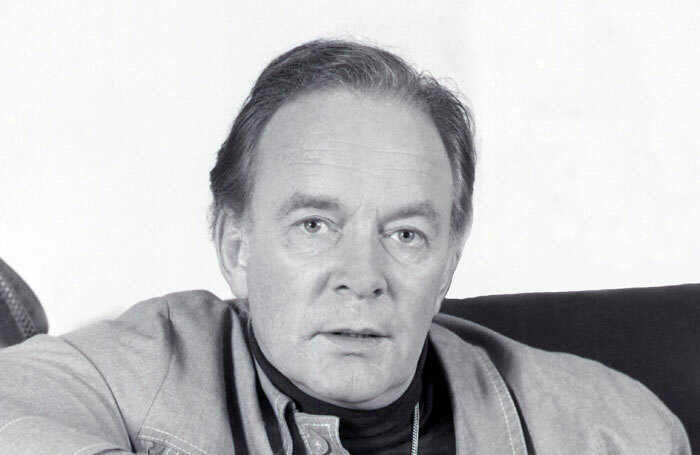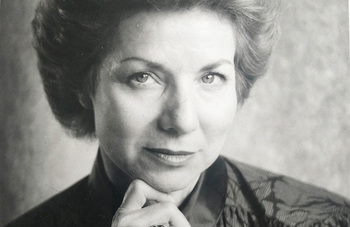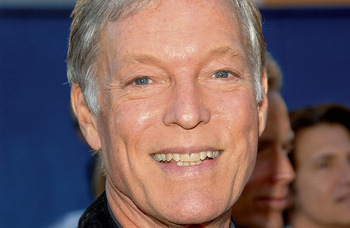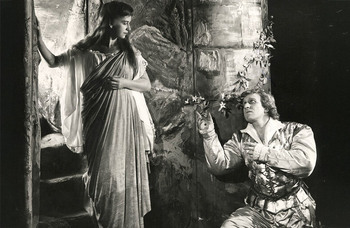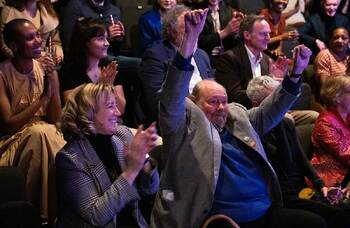Obituary: Tony Britton – stage and screen actor who became a familiar face in TV sitcoms
When Tony Britton, who has died aged 95, was seen as Gloucester alongside Joss Ackland’s King Lear in rehearsed readings directed by Jonathan Miller at London’s St James and Old Vic theatres in 2013, it marked the beginning of his eighth decade as an actor.
Born above a pub in Birmingham, Britton was active in amateur drama after leaving school while working in an estate agents and aircraft factory before making his professional debut in Esther McCracken’s Quiet Weekend in 1942. His fledgling career was interrupted by wartime service with the Royal Artillery, during which he found time to form a drama group.
Returning to civilian life in 1946, he spent a season at the Library Theatre, Manchester and in regional reps before coming to attention with a string of well-received performances in 1952. In Harvey Granville Barker’s The Voysey Inheritance at the Arts in London, The Stage judged his Edward “one of the most striking performances we have seen in a long time”. His Warbeck in Christopher Hassall’s The Player King at the Edinburgh International Festival received praise for its “natural ease and grace”, while he delivered a strongly characterised Ramases in Christopher Fry’s biblical drama The Firstborn at London’s Winter Garden.
In 1953 he joined the Royal Shakespeare Company, holding his own as Bassanio (The Merchant of Venice) and Pompey (Antony and Cleopatra) against Michael Redgrave’s Shylock and Antony and Peggy Ashcroft’s Portia and Cleopatra.
He brought an impudent, mercurial energy to Mercutio opposite Laurence Harvey and Zena Walker’s Romeo and Juliet and was an earthy Thersites in Troilus and Cressida in 1954.
Britton’s own Romeo for television in 1955 alongside Virginia McKenna’s Juliet was considered a triumph, his appearance at the Arts in Michael Burn’s Edwardian comedy The Night of the Ball judged one of the year’s best by The Stage.
He brought a debonair, man-of-the-world quality to Gaston in Peter Hall’s 1956 staging of Colette’s Gigi with Leslie Caron at the New Theatre and impressed as Trigorin (Chekhov’s The Seagull) and Hotspur (Henry IV Part 1) at the Old Vic in 1960.
A move into musical comedy proved hugely successful, touring for two years with the newly launched Southern National Company as Henry Higgins in My Fair Lady. He returned to the role again in 1978, first at the Leicester Phoenix and subsequently at London’s Adelphi Theatre, gaining a Society of West End Theatre award nomination.
At the Vaudeville Theatre, he appeared as a delightfully smooth Lord Illingworth in Oscar Wilde’s A Woman of No Importance (1967), in a stylish, witty partnership with Margaret Leighton in Somerset Maugham’s Loving Frederick (1970) and in Ray Cooney and John Chapman’s farce Move Over, Mrs Markham (1971).
His civilised German commander of the occupied Channel Islands opposite Celia Johnson in William Douglas Home’s The Dame of Sark was a hit on stage (Wyndham’s Theatre, 1974) and later on television.
With Anthony Quayle’s Compass Theatre in the mid-1980s he was memorable as Warwick (Bernard Shaw’s Saint Joan) and Alonso (The Tempest) in 1985 and as Gloucester (King Lear) in 1987.
The same year, he began a fruitful relationship with Chichester Festival Theatre, directing Wilde’s An Ideal Husband, starring Joanna Lumley and June Whitfield, following it with an exquisitely poised revival of Noel Coward’s Hay Fever (1988) and Molière’s The Sisterhood (1991). Notable onstage appearances at Chichester included Sir Thomas More (Robert Bolt’s A Man for All Seasons, 1987), a scheming Wolsey (Henry VIII, 1991), a liberal bishop in the middle of a reactionary family in Shaw’s Getting Married (1993) and an effortlessly persuasive Sir Thomas in Willis Hall’s adaptation of Jane Austen’s Mansfield Park (1996).
Returning to the RSC in 1994, Britton was a dignified Chorus (Henry V) and brought a warm-hearted relish to Sir Toby Belch (Twelfth Night).
In an Indian summer on stage, he took obvious delight in Anthony Absolute (Sheridan’s The Rivals, Royal Exchange Manchester, 1996), the Headmaster in Alan Bennett’s Forty Years On (Mobil Touring Theatre, 1997), Sir Ralph in Shaw’s The Doctor’s Dilemma (Almeida, 1998) and as the titular domestic tyrant in Harold Brighouse’s Hobson’s Choice on tour in 2002.
His last theatre appearances included his moving performance with Angela Thorne in Aleksei Arbuzov’s Old World on tour in 2003, Sir Henry in Agatha Christie’s The Hollow (Richmond Theatre, 2006) and a dotty Canon Chasuble in Wilde’s The Importance of Being Earnest in 2007.
On television, Britton will be remembered for his suave and snobbish but soft-centred roles in domestic sitcoms Robin’s Nest (1977-81), Don’t Wait Up (1983-90) and Don’t Tell Father (1992). He was BAFTA-nominated as Arthur Hopcraft’s The Nearly Man, a veteran Labour MP whose career is threatened when he chooses to re-engage with the working-class voters of his northern English constituency.
The cinema was less generous towards Britton, although his television Romeo had led to a contract with the Rank Organisation that saw him appearing in the 1959 wartime drama Operation Amsterdam.
For Disney, he was seen with Patrick McGoohan’s Dr Syn, alias The Scarecrow (1963) and later notable credits including Sunday Bloody Sunday (1971), The Day of the Jackal (1973) and Agatha (1979), starring Dustin Hoffman and Vanessa Redgrave.
Elected to the Equity council in 1975, he played an active role in the union over the next 20 years and more.
Anthony Edward Lowry Britton was born on June 9, 1924 and died on December 22. He is survived by two daughters from his first marriage – the writer Cherry Britton and television presenter Fern Britton – and by a son, actor Jasper Britton, from his second marriage.
Latest Obituaries
Most Read
Across The Stage this weekYour subscription helps ensure our journalism can continue
Invest in The Stage today with a subscription starting at just £7.99
